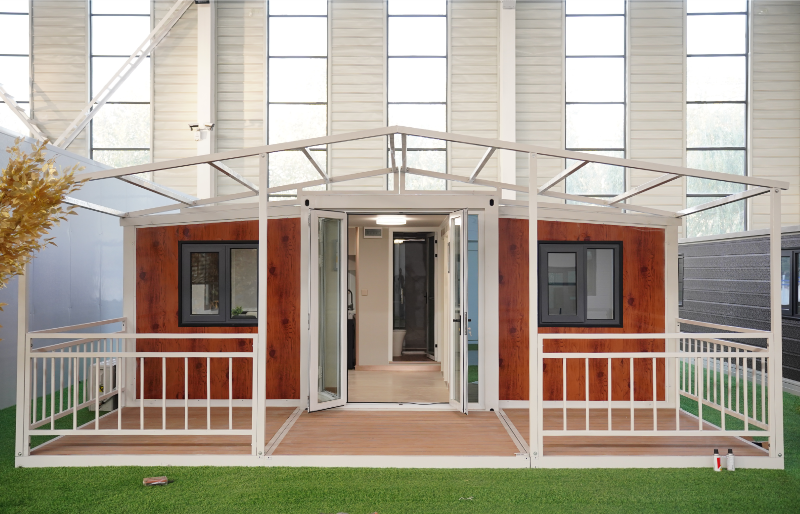Expandable container houses have gained popularity in recent years due to their versatility, affordability, and sustainability. These innovative structures offer a convenient solution for temporary or permanent housing, but it is crucial to understand their limitations as well. In this article, we will delve into the potential constraints of expandable container houses and shed light on their boundaries.
Space Limitations:
While expandable container houses provide flexibility in terms of size, they are still constrained by the dimensions of the shipping containers from which they are constructed. The available space may not be sufficient for larger families or those requiring spacious living arrangements. It is important to carefully consider the required living area before opting for an expandable container house.
Structural Modifications:
Although expandable container houses allow for customization and modifications, extensive structural alterations can be challenging. The steel framework of shipping containers restricts the ease of adding or removing walls, windows, or doors. Any significant modifications may require professional assistance and expertise, which could increase the overall cost and time needed for construction.
Insulation and Climate Control:
Standard shipping containers are not inherently designed for comfortable habitation. Adequate insulation and climate control measures are essential to ensure a livable environment within an expandable container house. Without proper insulation, these structures may be prone to temperature extremes, condensation, and inadequate energy efficiency. Additional insulation materials and HVAC systems may be necessary to address these concerns.
Building Regulations and Permits:
Before embarking on the construction of an expandable container house, it is crucial to familiarize oneself with local building regulations and permits. Some areas may have specific requirements or restrictions on using shipping containers as residential dwellings. It is important to ensure compliance with all relevant codes and regulations to avoid potential legal issues or delays during the building process.
Utility Connections:
Expandable container houses often require connections to water, electricity, and sewage systems. The availability and accessibility of these utility connections in the desired location must be considered during the planning stage. In remote or off-grid areas, additional infrastructure may be required, which can add complexity and cost to the project.
Expandable container houses offer a unique and cost-effective alternative to traditional housing. However, it is essential to recognize their limitations to make informed decisions. Space limitations, structural modifications, insulation challenges, building regulations, and utility connections are factors that should be carefully evaluated before embarking on an expandable container house project. By understanding these boundaries, individuals can better harness the benefits of these structures while ensuring a comfortable and compliant living environment.
Post time: Nov-27-2023








